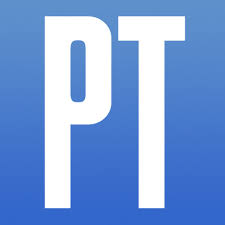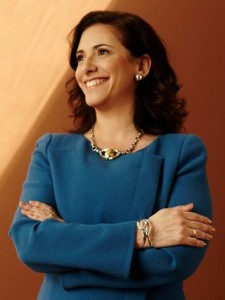Like most leaders, Mobius Executive Leadership co-founder Erica Ariel Fox has experienced extreme ups and downs in her career. Her Supreme Ordeal, her darkest moment, came when the ambitious project she had launched, Harvard’s Negotiation Insight Initiative (HNII) came to an end.
Through the retelling of her story using the Hero’s Journey framework, Erica Ariel Fox was able to gain new appreciation for how she has dealt with the obstacles in her path and maintained focus on her calling to the be the bridge between business leaders and the universe of self-discovery and self-transformation.
Below is part 2 of Erica Ariel Fox’s heroic leadership journey. For part 1, click here.
Where are you on your Heroic Leadership Journey? Download my e-book to find out now.
And so the project ended, but your work did not end. What did you do to restart? That sounds like it might have been the Supreme Ordeal to have the project at Harvard end.
That was definitely the Supreme Ordeal. I still have a lot of sadness around it. I learned an incredible amount. I grew up in a way through that experience in my own leadership. I was very confused and shocked. This was what I was born to do and like boom! it’s gone. I’m doing what I thought I would do for the next thirty years and it’s over and it was just five years. I still teach at the law school, but this project felt like my life, and it was gone and not coming back.
There was a really, really dark night of the soul, a feeling of confusion. I felt angry at God. I’m trying to follow a calling and I didn’t understand. But I did have wonderful conversations with teachers from many different faiths.
I happen to be a Jewish person who practices Judaism and Kabbalah but I talked to many different teachers and healers from many different traditions. And what I took away eventually was that I was mixing up a role and a life’s work. What they said to me in very different ways is that I do have a calling.
They told me: “This is your life’s work. This is your vocation. This is what you’re going to do for the next several decades. The platform of that, however, is it a center at Harvard?
Is it a business? Is it a philanthropy? Is it a foundation? Is it a center you open? That’s not the point. The point is that you know what your life’s work is. It’s not a center or a business or a this or a that.”
It was a real journey to wrap my head around that, and when I finally did we opened Mobius Executive Leadership. It was an unlikely forum because it’s a business entity that supports businesses doing transformational leadership work. I had seen myself as a teacher and a researcher, at home in a center of research at a university. But actually, this turned out to be a wonderful platform to continue my life’s work. In many ways we’re having more impact now. I couldn’t see that at the time but certainly looking back now I see it clearly.
You did not abandon your mission when the project ended and go find another mission. In the conversations you were having with your spiritual teachers, they were really talking about: This is about who you are, not where you’re located.
Exactly. I mean you just said it more perfectly even than they at the time. Let’s talk about limiting beliefs: You’re telling yourself a story that these people came to study with you because it’s Harvard. What if they actually came to study with you because you’re a beautiful and powerful teacher? What if those people came to study with you because you’re channeling some important wisdom and they’re going to come whether you’re at Harvard or not?
That was hard to get my head around. “Of course they’re coming because it’s Harvard.” And they said, “Yeah, probably that’s part of it but it’s not all of it. Why don’t you go find out? Go test it.”
So if we think of that as the Supreme Ordeal and then you have the victory of re-immersion, tell me about the rewards for you—that’s phase six of the heroic journey—when you Return to the Ordinary World. What would you consider to be the boons and the blessings for you but also for the people who are benefiting from this work?
It was an ego-shattering experience. I was completely identified with that center: If I’m not the director of HNII, who is Erica Ariel Fox?
Going through that healing process of separating your life’s work from your current platform, making that distinction and pledging myself to a vision and not to a place was really freeing. That was the first reward.
A second thing is that I had political naiveté then about the forces that are at work in conventional institutions. And because now a lot of my clients are CEOs or senior executives in very well-known large global multinational corporations, I have a much more refined understanding of the politics of those places. And so I see landmines before I or my clients step on them.
I was thirty-something. I’m forty-six now. So you live also and learn.
I have a better perspective now about how everything cycles. You give birth to something, it has its season, it passes and something else arises, and that is just how things go.
And so I feel now with the various innovations we offer, a breakthrough leadership program, it will succeed or it won’t. If it does, fantastic. If not, we’ll operate it in another way.
I carry things more lightly. I’m not so attached to any particular part of what I’m doing. The center was my life and it went away and I’m still living my same life, you know, in a different expression.
One of the things I’m fond of saying is people follow people, not just great ideas. So you are a leader and you are essential to the equation, right? And at the same time, don’t even take that too seriously because there is this greater mission and vision that you are dedicated to.
Going back to the lightness you mentioned, being agile and adaptive—a lot of people talk about those qualities as very much related to lightness. So you fall inlove with one way of doing it but you’re not getting married. You’re not committed for life, because the way today will show you what’s working and what’s not working, and it’s a constant reinvention.
Yes. And that’s what we’re helping clients to understand. You know, having been through it myself, I can share. It’s not a book I’ve read. It’s my experience and I think that makes what I’m saying more authentic.
Getting back to the reward, part of it is that with perseverance and taking the long view, you can still achieve some dreams that you think were just long lost. You think: Well, it just didn’t happen. Well, it didn’t happen then. It didn’t happen yet.
When the center fell apart I felt like, “But I was following [my mentor] Roger Fisher’s footsteps”—and he was certainly the most influential person in my life professionally. I felt all is lost. But then, ten years later, I wrote a book. It’s a New York Times bestseller.Winning from Within is sort of a sequel building on Roger’s idea of Getting to Yes in my mind. Originally the book was called “Beyond Yes.”
So the center didn’t last, but wow, I did a book like he did. Everything did not go away. I learned that even if you give up on a dream or you feel something is over, there still could be fruits of the seeds you’re planting. You might not harvest them for ten years and then you say, “Hey, you know what? This book was part of that dream.”
It’s that reservoir of challenge and perseverance that you’re talking about in dedication to serving the world And then look what can happen. Oh, my gosh! Look what happened to me! It’s the serendipity side of what you’re doing.
It does feels like serendipity. That’s a perfect word. I have in my office a plaque with an Anaïs Nin quote: “And the day came when the risk to remain tight in a bud was more painful than the risk it took to blossom.”
That, to me, captures these leadership programs that I’m running for these executives to sign up, I mean, they wouldn’t probably choose poetry, but it’s really why they’re coming. They’re saying, “You know what? It’s too painful now to stay where I am. I want to break through and blossom and thrive and bring out all of the capacity that I know is in there, but I just don’t know how to get at it.”
And the reward comes when these people leave on Friday. It’s an extraordinary honor. We see the real meaning of “shining eyes.” The joy. The life force radiating from them. The light and warmth from re-kindling an inner fire. To see that kind of human transformation in front of your eyes, from Monday to Friday, over and over. That is quite a reward.
Of course, the best reward is seeing clients months or years later, and hearing how they’ve changed their lives. “After I explored my inner Dreamer, I discovered my true passion. I started my own company, and I’m so much happier,” or “after we explored the inner Lover, I could see how hostile I was at home. Since that course I’ve really stopped yelling at my family, and it’s made all the difference.”
Stories of people finding the Warrior within, finally standing up for themselves, saying no to bullies. Stories of people creating the lives and relationships they really want. These are the most amazing rewards of all.
What is so interesting to me about your work is that this is about discovery. The discovery of who you really are so you can lead with what you have. So with the whole idea of winning from within, it’s the within part that needs to shine through.
Absolutely. We put things in simple, but not simplistic, frameworks.
We often say in these seminars, “Look, everybody here knows you have your best self, when you’re at your greatest. And then you have your everyday self and there’s a consistent distance between your everyday self and your best self.” In the book I call that the performance gap.
“But wouldn’t it be great if you could live every day as your best self? Or if you could make the difference between who you are in your greatness and who you are day in and day out, at home and at work, actually quite small? Wouldn’t that be great?
People get that and I think the shining eyes in part is from igniting the best self and communicating to yourself, “That’s the part of me I want to bring every day when I get up.” That’s part of what I think is liberated. It’s like an inner flame that re-lights something inside people.
This is the difference between a knowledge- and skill-based program and a transformational program, which is, to your very language, when you cross a threshold, you can’t go back. This isn’t like learning an idea that you could forget. So people cross genuine developmental thresholds and they don’t cross them back.
They’ve integrated something that’s meaningful and powerful and it’s now in their DNAand so it’s very sustainable change. And that’s a beautiful thing as well to see. I see people five years later and they’re saying, “Wow, it was a turning point,” like everything after that was different.
The frames that you use are so important for people because we do need help. We need language, we need frameworks. I think the language is always a barrier when you’re bringing a tradition or a different source of wisdom. You have to translate it into the vernacular, so to speak.
I said earlier that I feel often I’m doing translation. So in the book I have an entire chapter on mindfulness, but I never once use the word “mindfulness.”
Because that is not a word that makes sense for business people. I talk about seven parts of the self in the book and one of them is the Lookout. It’s like a lookout on a ship. It might be called “the observer” or in psychology and voice dialog the “aware ego” or in spiritual traditions it might be called “witness consciousness” or, as you said, “going meta”. I just say: You have this Lookout and the Lookout’s job is to look into you and ask, “Is this my best self? Am I centered or reactive?”
So in that sense I can tap into this thousand-year-old tradition around self-reflection, self-observation, witness consciousness, but in a language that works for people who run companies day in and day out.
**************************
Erica Ariel Fox teaches executives to find the core qualities of leadership inside themselves, equipping them to “Win from Within.” She is a highly sought-after advisor and speaker to Fortune 100 companies and other groundbreaking organizations. As the former director of the Harvard Negotiation Insight Initiative, she previously brought together negotiation, neuroscience, meditation, and myth to train best-in-class leaders, communicators, and decision-makers. Today, she offers the same breakthrough training methods to executives around the world. Follow Erica Ariel Fox on Twitter @ericaarielfox.
Dr. Kathy Cramer has written seven best-selling books including Change The Way You See Everything, which started the Asset-Based Thinking Global Movement. Her latest book, Lead Positive, shows leaders how to increase their effectiveness through her revolutionary yet refreshing simple mindset management process, Asset-Based Thinking. Download her Speaker Kit here.
To read more of Kathy’s thought leadership, visit drkathycramer.com/watch-listen-read. Follow Kathy on Twitter at @drkathycramer.


